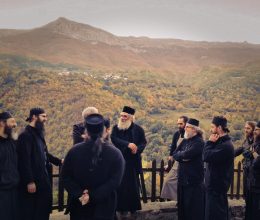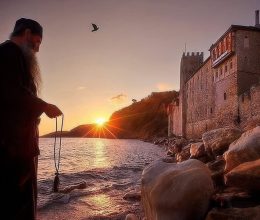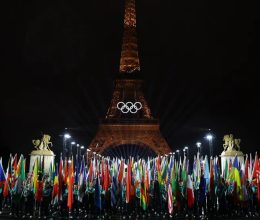
Halloween – a holiday of unclean spirits that our beloved and youngest ones celebrate on the night of October 31st. But to truly understand the essence of this senseless celebration, we must delve into its roots.
The holiday traces its origins back to the pre-Christian era, among the primitive Celtic pagans in the regions of England, Ireland, and Northern France. The Celts believed in the rebirth of life after death. They marked the beginning of the “new” year, the new life in general, on the night of November 1st, when the transition from the light to the dark period occurred. They celebrated the god Samhain, who, according to them, was the lord of death. It was believed that on this night, the souls of the dead, who dwell in the world of darkness, cold, and death, visit the homes of the living, presenting themselves with an insatiable hunger. And if the souls of the dead were not appeased with offerings, the wrath of the god Samhain would be unleashed upon the living. Hence, the custom rooted in the pagan world, and in modern times, for wanderers to roam during Halloween dressed in costumes of devils, witches, and the like, to symbolize the communion of the world of the living with the afterlife and unclean forces. Later, a lantern in the form of a pumpkin head became an attribute of the holiday, with which children dressed in white scare the adults, who then redeem themselves with gifts.
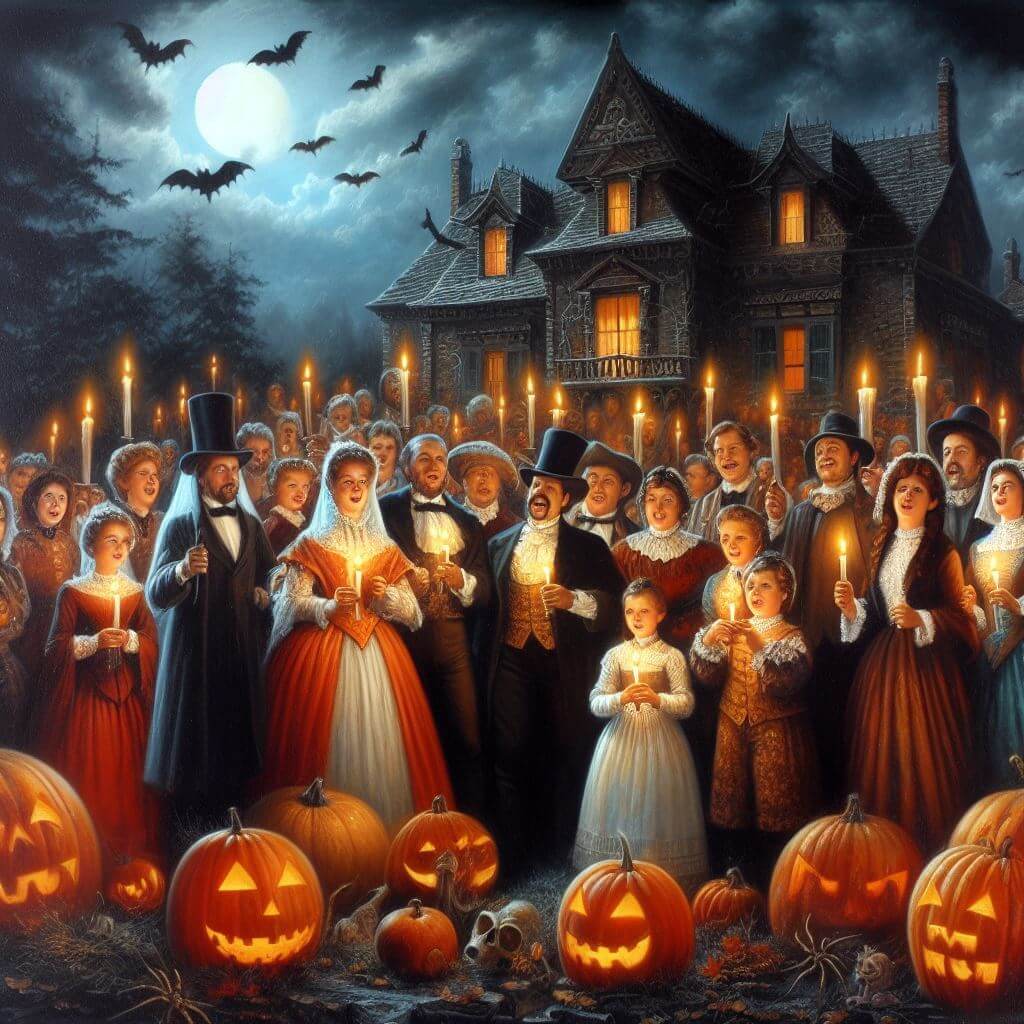
The coming of the Lord Jesus Christ into the world brought a new, fresh, and positive perspective on the understanding of life and death. Thus, the Christian Fathers, even in the early centuries, sought to correct this erroneous eschatological perception and countered the pagan celebration with the feast of “All Saints’ Day,” which has an entirely different meaning. In the Orthodox world, it is celebrated a week after Pentecost, while in the Roman Catholic tradition, it precedes the Nativity Fast and is celebrated on November 1st. The feast of “All Saints’ Day” is connected to the word Halloween, which derives from the words All Hallow’s Eve—the evening before All Saints’ Day, or All Hallowed Souls Eve—the evening of all holy souls.
Unfortunately, modern society, sometimes due to a lack of understanding of Christian tradition, equates the pagan holiday with the Roman Catholic feast of “All Saints’ Day,” and year after year, this event incorporates increasingly anti-Christian elements filled with all kinds of impurity. We must not forget that there was a time in the West when the old Christian peoples innocently amused themselves by contrasting the faces of their children with pumpkins, symbolizing Christ’s victory over evil. Today, however, in that same West, evil is taking over; and it is not uncommon to hear of various crimes, vandalism, and uncontrolled terror carried out by teenage gangs during the Halloween celebrations. What good can be seen in masks that depict the evil one? And what is positive about children dressed as vampires, witches, and devils?
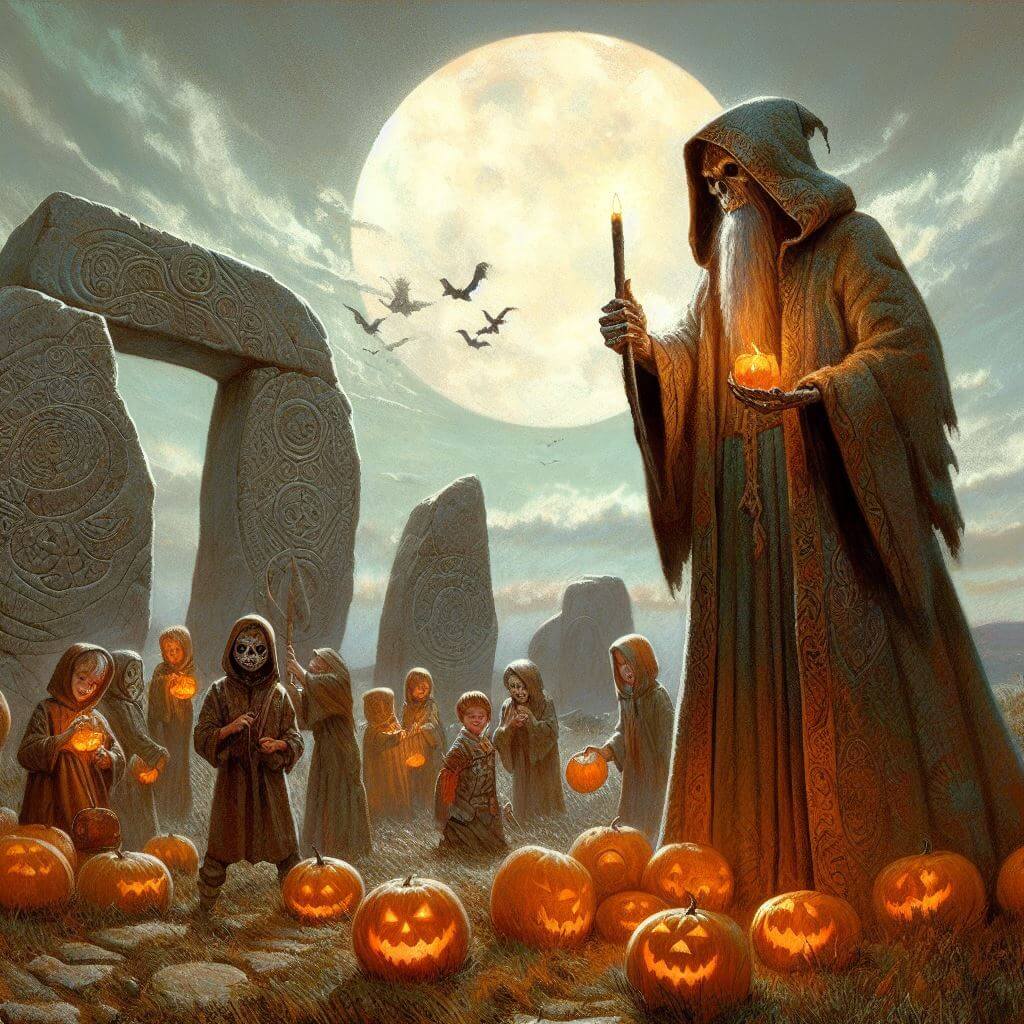
The very celebration of Halloween is paradoxical. The paradox lies in its endorsement by educational institutions, which contradicts the very (if it still exists) moral and cultural character of education. Modern society, which presents itself as atheistic, and sometimes even nihilistic towards religion, by allowing the celebration of this event, introduces religious elements into that same society: the cult of death, the personification of death, and the spirits of evil. But do not think that constructive religious traditions are being introduced! On the contrary, a psychological experience of fear and phobias is being introduced. Accepting Halloween means turning the end of our earthly life into a carnival with the slogan supposedly comforting: “Nothing is scary, everything is funny and joyful, and death does not exist; it is just a disguised monster, so continue to live by the principle: ‘Take as much as possible from life.'” The global postmodernist scene has knocked on the doors of our country. The popular acting caravan becomes an idol that the youngest worship and imitate. Fortunately, in our country, it has not yet gained strong momentum, but it is wise to ensure that we prevent the spread of this destructive spiritual hurricane that destroys the souls of children. And the strongest bulwark and surest protection in this are the parents, who should with all available forces oppose such occurrences, reject suggestions for “innocent and fun children’s parties,” even when they are offered by educational institutions.
Times have seriously changed, and instead of the innocent (or almost innocent) family gatherings, the so-called entertainment industry has emerged, increasingly adopting mystical meanings. In fact, modern Halloween is a kind of business project, where shallow and unclean traders profit from the frivolous interest of the youngest. But the most frightening aspect is that some higher instances profit from the certain demonization of children’s consciousness, as this event is perceived as a model for imitation. This anti-cultural and immoral phenomenon destroys the psyche of the child, who, if supportive of it, will inevitably taste the bitter fruits of nightmares, unmotivated and uncontrolled aggression, and “God forbid”—suicides. Yes, a business project where children spend money on devilish masks, and adults are increasingly interested in the commercial aspect of Halloween celebrations. It is an entire commercial industry. But it is a trade where the top product is the child’s soul. The climax of the celebration on this day is the screening of the movie “Halloween Night,” in which a boy, on the eve of the holiday, kills his six-year-old sister and as a result, becomes a bloody maniacal killer. And it is highly likely that in the future, many young people, drawn to the demonic psychology of this type of film, will commit a similar act.
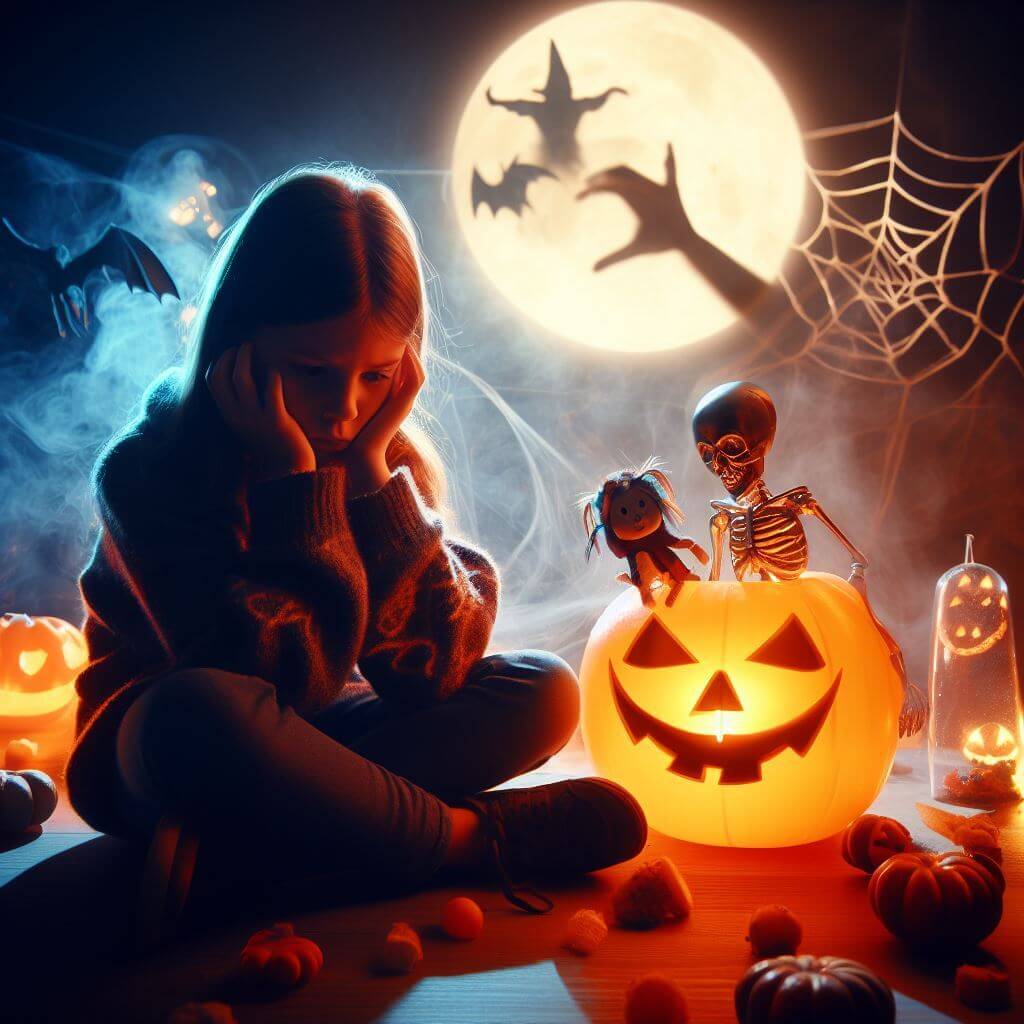
Therefore, education must unconditionally strive to raise children in the spirit of constructive religious tradition. The implementation of “innocent and fun,” yet in their essence destructive, school activities in anticipation of the holiday contradict the fundamental cultural and educational traditions that have been carefully nurtured by our ancestors. If they could speak, and they do speak in the reason and heart of all those who respect their work, it would sound like this: “Normal religiosity is disappearing, and in its place comes commercial horror, from which we conclude that the world is turning away from Christ and beginning to serve darkness.”


